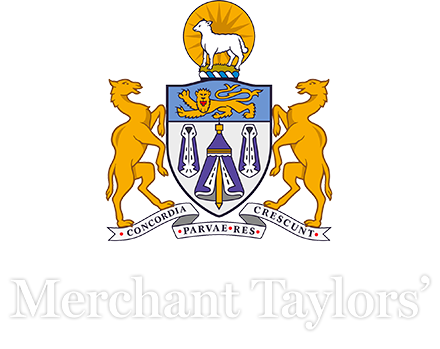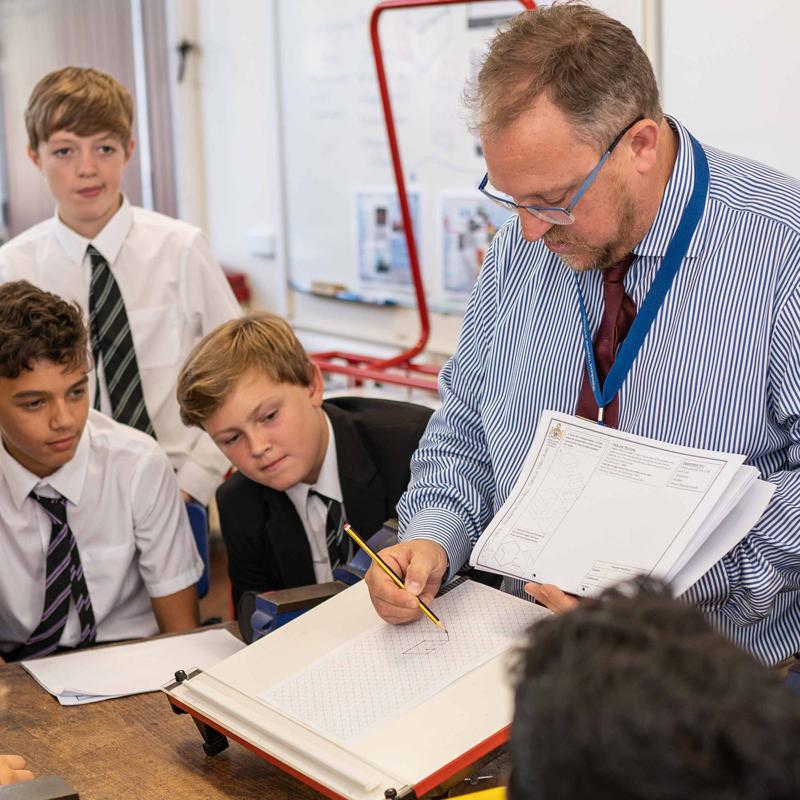Design & Technology
Design and technology gives young people the skills and abilities to engage positively with the designed and made world and to harness the benefits of technology.
They learn how products and systems are designed and manufactured, how to be innovative and to make creative use of a variety of materials and digital technologies, to improve the world around them.
Lower School
Our foundation course in Years 7, 8 and 9 is designed to give pupils a thorough grounding in a range of design and manufacturing skills. We consider graphics to be an essential part of this foundation, so we teach pupils how to use a drawing board to draw in both orthographic and isometric.
In the workshop, pupils begin by learning basic bench techniques in wood, metal, and plastics. As they progress through the three years, they are introduced to more complex skills which demand a higher standard of accuracy, and pupils are encouraged to develop their own designing skills.
By the end of the foundation course, all pupils will have used most of the school workshop equipment. 3D printing and a range of other modern technology is available to enhance the educational experience for pupils of all ages and abilities. It provides access to current practice in product design, engineering and other related subjects.
GCSE
GCSE Design and Technology prepares pupils to participate confidently and successfully in an increasingly technological world.
Taught by a specialist teacher, pupils gain awareness of wider influences on Design and Technology including historical, social, cultural, environmental and economic factors, while also working creatively when designing and making and apply technical and practical expertise.
Pupils study core technical and designing and making principles, including a broad range of design processes, materials techniques and equipment. They also have opportunity to study specialist technical principles in greater depth and apply previously acquired engineering principles and craft skills.
Assessment is by written exam, worth 50% of the overall mark, and a substantial design and make project, also worth 50%.
A Level
Taught by a specialist teacher, the A-Level course places greater emphasis on understanding and applying iterative design processes. Pupils will use their creativity and imagination to design and make prototypes that solve real and relevant problems, considering their own and others’ needs, wants and values.
The course includes the study of contemporary design issues, the life-cycle of a product, engineering methods and resistant materials. Students investigate historical, social, cultural, environmental and economic influences on design and technology, whilst enjoying opportunities to put their learning in to practice by producing prototypes of their choice using traditional craft methods alongside new technologies, CAD/CAM/CNC, using machines such as CNC lathes, laser cutters and 3D printers.
Pupils need a genuine interest in manufacture and design and must have a minimum level 6 at GCSE Design & Technology. Some students use this subject as an opportunity to complete an Extended Project Qualification, whereby their practical skills prove useful in the submission.
The subject is closely related to industrial and commercial standards providing transferable skills for the future; ICT, organisational, analytical and evaluative. Pupils gain a real understanding of what it means to be an Engineer alongside the knowledge and they go on to study Engineering, Design, Architecture and many other related career paths at University.
Assessment is by two paper assessments; in technical principles and design making principles (50% overall mark) and a non-exam assessment (also 50%), which involves a substantial design and make project reflecting the practical application of technical, designing and making principles.




